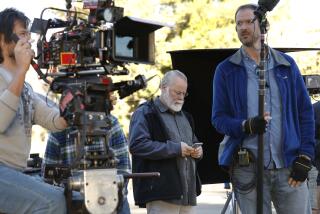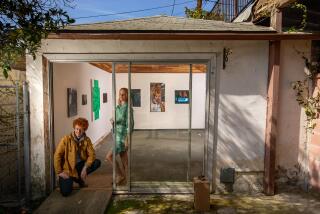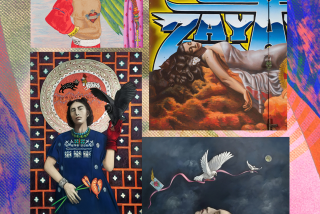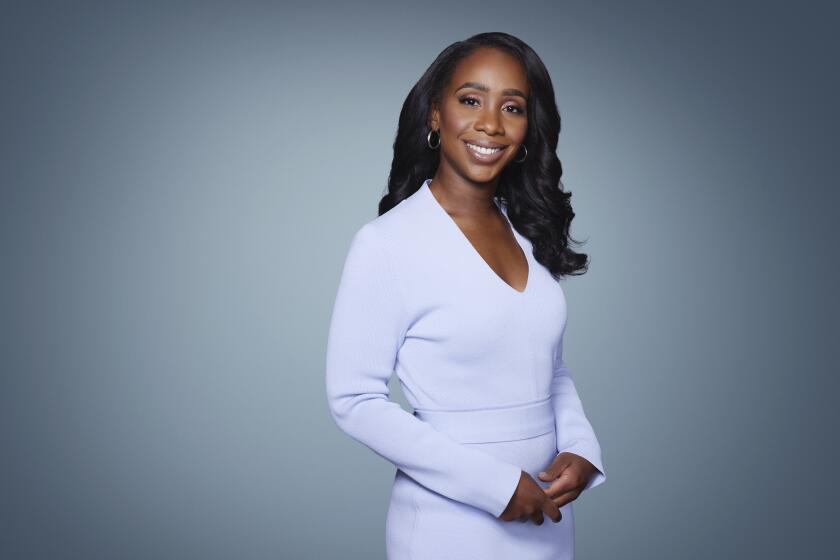Trump travel ban may be on hold, but many artists still wary
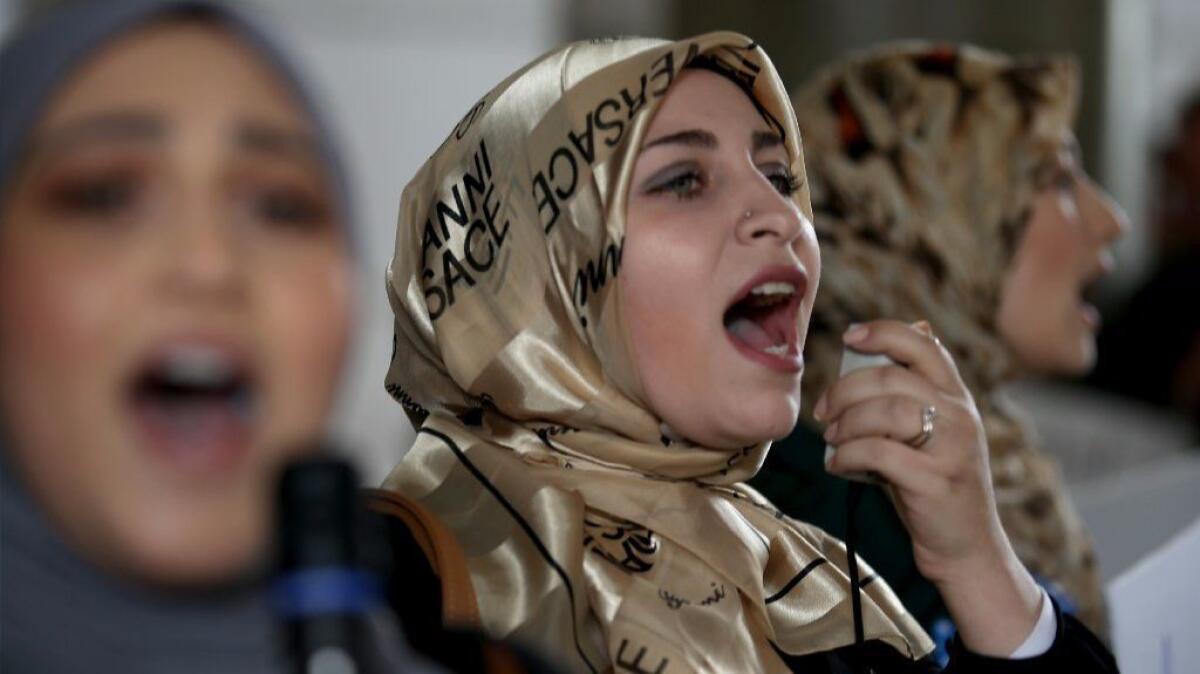
President Trump’s executive order on travel may be temporarily halted, with visa cancellations reversed by the State Department for now, but that doesn’t mean those affected by the ban are breathing a sigh of relief just yet.
On Friday, federal judge James Robart of Seattle issued a restraining order after deciding that the executive order — banning those from seven Muslim-majority nations entry into the U.S. — unlawfully discriminated against Muslims.
On Saturday, however, as protests raged at LAX, many in the L.A. arts community were still wary.
“There are a lot of people who are scrambling to travel right now while we’re in this limbo period, because they don’t know what is going to happen next,” said Alireza Ardekani, executive director of the L.A.-based Farhang Foundation, which presents work by Iranian artists.
“It might be a temporary situation, we don’t know, so people are trying to take advantage of it,” Ardekani said. “Or they’re moving their trips up because they think it’s a short window of opportunity.”
If there’s a single word that sums up what so many in the local Iranian community are feeling, it is “uncertainty,” said Roshi Rahnama, founding director of Advocartsy, a cultural organization dedicated to bringing awareness to Iranian contemporary art.
“Whether they want to travel out of or back into the country, everyone is holding their breath to see how it will all unfold,” she said. “Even though there’s this temporary hold [on the ban], certain damage has been done that cannot be rectified immediately. We’ve always been blessed with the reliability of the laws in this country, and that’s been shaken the past couple of weeks.”
L.A. painter Amir H. Fallah, who’s part of Advocartsy’s multimedia exhibition opening Feb. 10, “Art Brief III: The (Un)Draped Woman,” said he’s felt “a little relieved” since the ban was lifted, but he’s “still skeptical.” Fallah, the father of an 18-month-old, said the executive order, even if it’s never reinstated, has interfered with his family relations back in Iran.
“I have two elderly grandmothers in Iran who have U.S. visas,” he said, “and they will probably never come back to America again — the journey is already so difficult for them, they’re in wheelchairs, and they can’t risk that headache. They don’t want to take the risk and then get turned around. It means my grandmothers won’t get to meet their great-grandson, which is depressing.”
Photographer Hadi Salehi, who also has work in the “(Un)Draped Woman” exhibition, echoes that sentiment.
“I have a 15-year-old niece and was planning to bring her here this summer from Iran,” he said, “but I don’t think that’s going to happen now. That sort of shattered my dream. I’m not too optimistic things will stay like this; I hope so. I am worried that the travel ban will come back.”
Still, Salehi — who is 66 and immigrated to L.A. in 1978 — said he makes an effort every day to be positive.
“It’s not easy living in America,” he said, “just being Iranian and different. Sometimes there’s racism. But I love America, to tell you the truth. I really do.”
Follow me on Twitter: @debvankin
How the Trump travel ban is already impacting L.A. arts institutions and artists
Life in Iran: Contemporary photography exhibit tries to build a cultural bridge
The Getty acquires Miranda July’s feminist DIY video archive for ‘Joanie 4 Jackie’
More to Read
The biggest entertainment stories
Get our big stories about Hollywood, film, television, music, arts, culture and more right in your inbox as soon as they publish.
You may occasionally receive promotional content from the Los Angeles Times.
